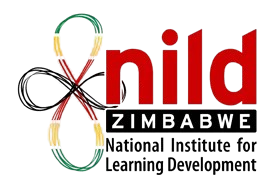Home > FAQ's
Your Questions About NILD Educational Therapy Answered
What is NILD?
NILD is a programme of educational therapy that uses interactive language and dynamic intervention to address the students’ areas of weakness in processing, memory, attention, oral and written language, reading, spelling and math. It helps develop efficient, accurate thinking, teaching how to learn rather than what to learn. As competence and confidence improve, students are then able to learn on their own without the aid of tutoring or modifications. The goal of educational therapy is to equip students to succeed in their classroom and in life as independent learners. NILD Educational Therapy is a direct, language based intervention for students with learning difficulties.
Who is a candidate for NILD therapy?
Potential students for this programme include individuals in junior school, high school, college and careers who are experiencing obvious frustration in areas of performance. Poor spelling, illegible handwriting, inability to express thoughts verbally or in writing, organisational and memory weaknesses, and difficulty with reading or math are common indicators of a need for educational therapy? Students who have benefited from this program include students with learning disabilities, attention disorders, central auditory processing disorders, students with developmental delays and autism spectrum disorder.
What are the benefits of educational therapy?
- Long-term change
- Improved self image
- Development of responsibility
- Independent learning
- Development of higher order processing and core academic skills
How does NILD Educational Therapy work?
Weaknesses in perception and/or cognition impact learning process and create uneven academic performance. The learning process is represented as a wall with various components. Perceptual and cognitive skills form the foundation of the wall. If any of these areas, such as visual or auditory memory or abstract/logical thinking are weak or vulnerable, academic skills are affected. After cognitive and perceptual weaknesses are strengthened, the learning process functions efficiently. Students become able to learn independently. More like physical therapy, NILD Educational Therapy is boosting weak, vulnerable systems.
What age do students begin NILD educational therapy?
Students can be assessed and begin NILD from Grade 1 upwards and through to adult level. For the younger children Search and Teach is available from 60-80 months as an identification and intervention programme to help make their learning process successful.
How can we know this programme works?
Several research studies are available on the programme. A dissertation has been completed with statistical data documenting programme effectiveness. However, success stories of students having completed the programme speak for themselves. Many are pursuing undergraduate, graduate and doctoral degrees.
Who is an Educational Therapist?
NILD educational therapy is administered by trained therapists who are passionate about helping children learn. They are committed to providing support and encouragement as they direct their students through the learning process. Each therapist has countless hours of experience working with children and is given supervision and direction from NILD Zimbabwe. As therapists, we are dedicated to bringing out the best in your child, starting right where they’re at and helping them achieve new goals, one step at a time.
How much does Educational Therapy cost?
NILD educational therapy is competitively priced compared to extra lessons and other therapies, especially as this therapy is one-on-one instruction and includes annual testing. The cost per session will vary depending on the experience of the NILD educational therapist.
